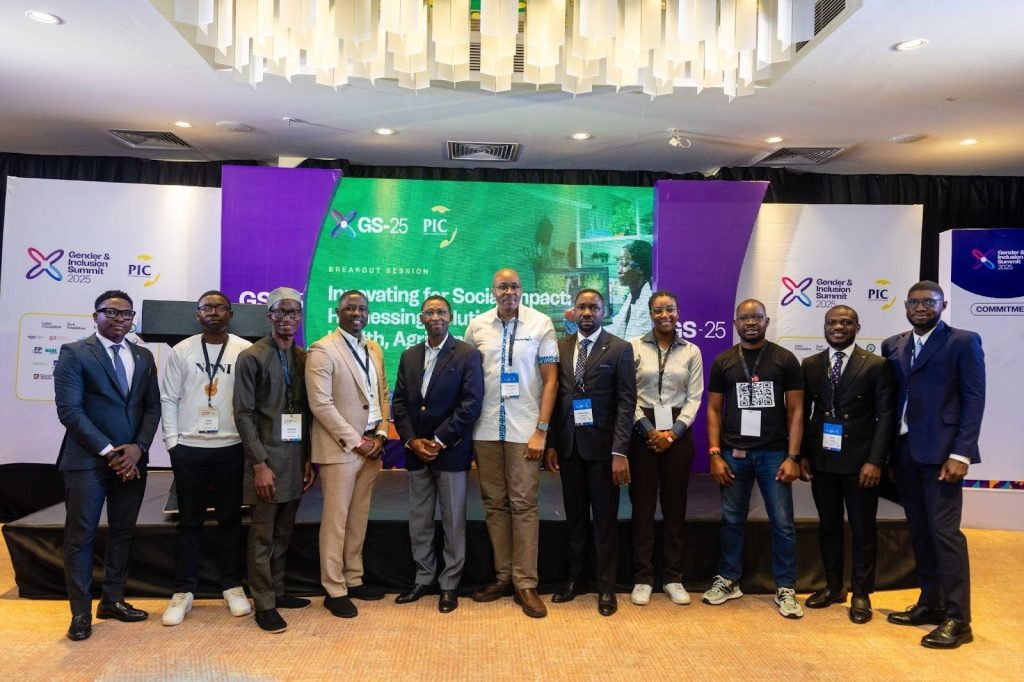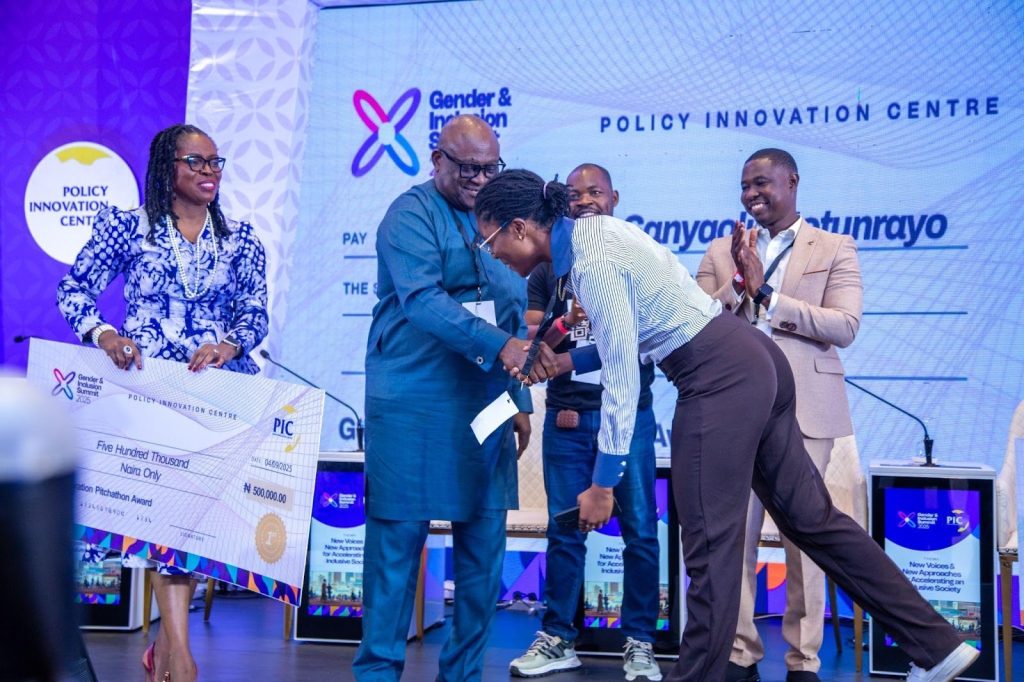In a developing nation like Nigeria, life-saving ideas often struggle to reach the people who need them most. Innovators face barriers such as a lack of funding, weak infrastructure, and limited access to networks or mentorship.
The Policy Innovation Centre (PIC) is changing that narrative. At its Gender and Inclusion Summit 2025 (GS25), innovators stepped onto the stage with personal stories that revealed the country’s urgent challenges, from newborns dying of low body temperature in hospitals without incubators, to mothers risking their health over smoky kitchens, to children missing vital nutrients. Policy Innovation Centre is transforming these moments of urgency into actionable solutions by scouting, showcasing, and nurturing high-potential innovations that tackle persistent challenges in maternal health, child nutrition, and agriculture.
At the heart of this transformation is PIC Innovation Lab, where innovation meets design thinking to solve real-world problems. The lab equips innovators with the mentorship, investor access, and incubation support they need to overcome systemic challenges that typically hold back good ideas.
At the Gender and Inclusion Summit (GS25), the energy was electric as finalists presented solutions rooted in both lived experience and scientific innovation. From over 400 entries, only six finalists made it to the stage. Sanyaolu Motunrayo emerged as the winner of the Innovation Pitchathon, receiving a ₦500,000 grand prize. She introduced NeoBlankey, a solar-powered warming blanket that helps premature babies survive when incubators are unaffordable. Habib Akinsola pitched Abiyamo, a solar-powered infant incubator providing ICU-level neonatal care to underserved communities, earning second place and ₦300,000. Uche Keneth Udekwe showcased Smokeless Briqs, eco-friendly cooking solutions that protect mothers from deadly indoor smoke, winning third place and ₦200,000.

The other finalists showcased solutions that were no less remarkable. Emmanuel Ejike’s HemoLife tackles Nigeria’s critical blood supply gaps, Theophilus Venn’s Edveen Edible Cups merge nutrition and sustainability in edible cups, and Suleiman Habib’s 960g Powdered Egg addresses protein deficiencies in children nationwide. Together, these six innovations highlighted Nigeria’s creativity and the urgent need for inclusive solutions that can transform lives.
All finalists benefited from a short learning session and coaching ahead of their pitch presentation, and post-summit, all finalists, whether or not they won prize money, will continue the journey with three months of incubation at the PIC Innovation Lab. This includes mentorship, investor and market readiness, and guidance to pilot and scale their innovations. In this way, the summit serves as a springboard, and the lab ensures ideas grow into tangible solutions that improve lives.

The energy in the room reflected more than just competition. It was a collective belief in Nigeria’s capacity to innovate. As PIC’s Behavioural Insights Lead announced the winners, the excitement in his voice matched the cheers of the audience, underscoring how much promise these innovators hold for the nation’s future. Stakeholders in the room were also invited to invest in these groundbreaking ideas, signalling the start of partnerships that can take them even further.
“It was so encouraging to have the audience at GS25 see the potential of this innovation. My vision is for NeoBlankey to become a natural part of the maternal experience in the country. No baby care package should feel complete without it,” says Motunrayo, founder of NeoBlankey.
Theophilus Venn, founder of Edveen Edible Cups, expressed anticipation for the incubation programme: “We have faced challenges with scaling production and market penetration, and I anticipate PIC’s incubation programme will provide the mentorship, networks, and resources needed to overcome these hurdles and accelerate Edveen Edible Cups’ growth.”
PIC’s Behavioural Insight Lead, Akinwumi, added, “Our mission is to turn ideas into actionable solutions. Through the Innovation Lab, we make sure innovators have the tools and support to succeed after the summit.”
With PIC nurturing talent from pitch to incubation, mentorship, and investor and market readiness, Nigeria’s innovators are no longer waiting for opportunities; they are creating them. From health to agriculture, from child nutrition to clean energy, the future of inclusive social innovation is being written, one idea at a time, at the Policy Innovation Centre.
About PIC
The Policy Innovation Centre (PIC) is Nigeria’s first institutionalised behavioural initiative supporting stakeholders to make behaviourally informed decisions and generate evidence for impact-driven interventions across critical thematic areas, including governance, health, gender, agriculture, digital inclusion, and livelihoods. Through its Behavioural Innovation Lab, PIC designs and implements innovative (policies, products, and services) to solve complex human problems by drawing lessons and insights from Behavioural science.






